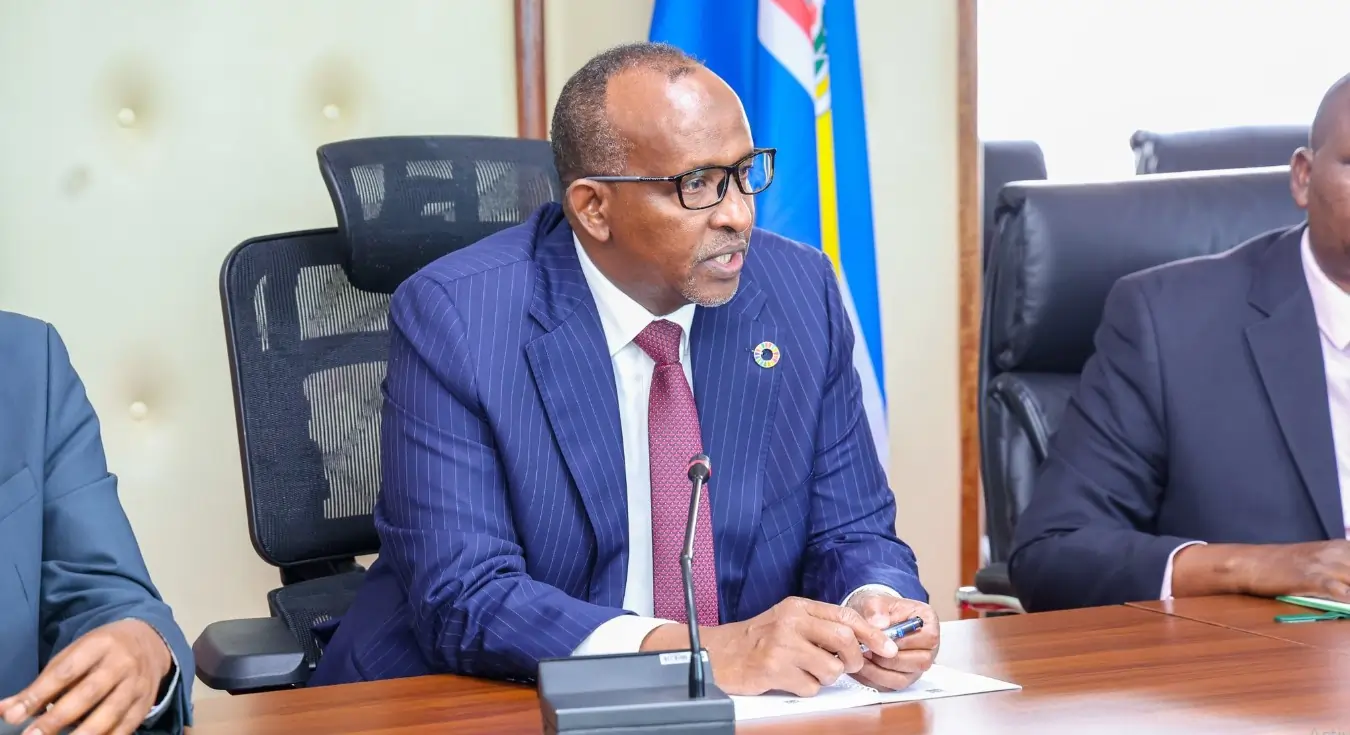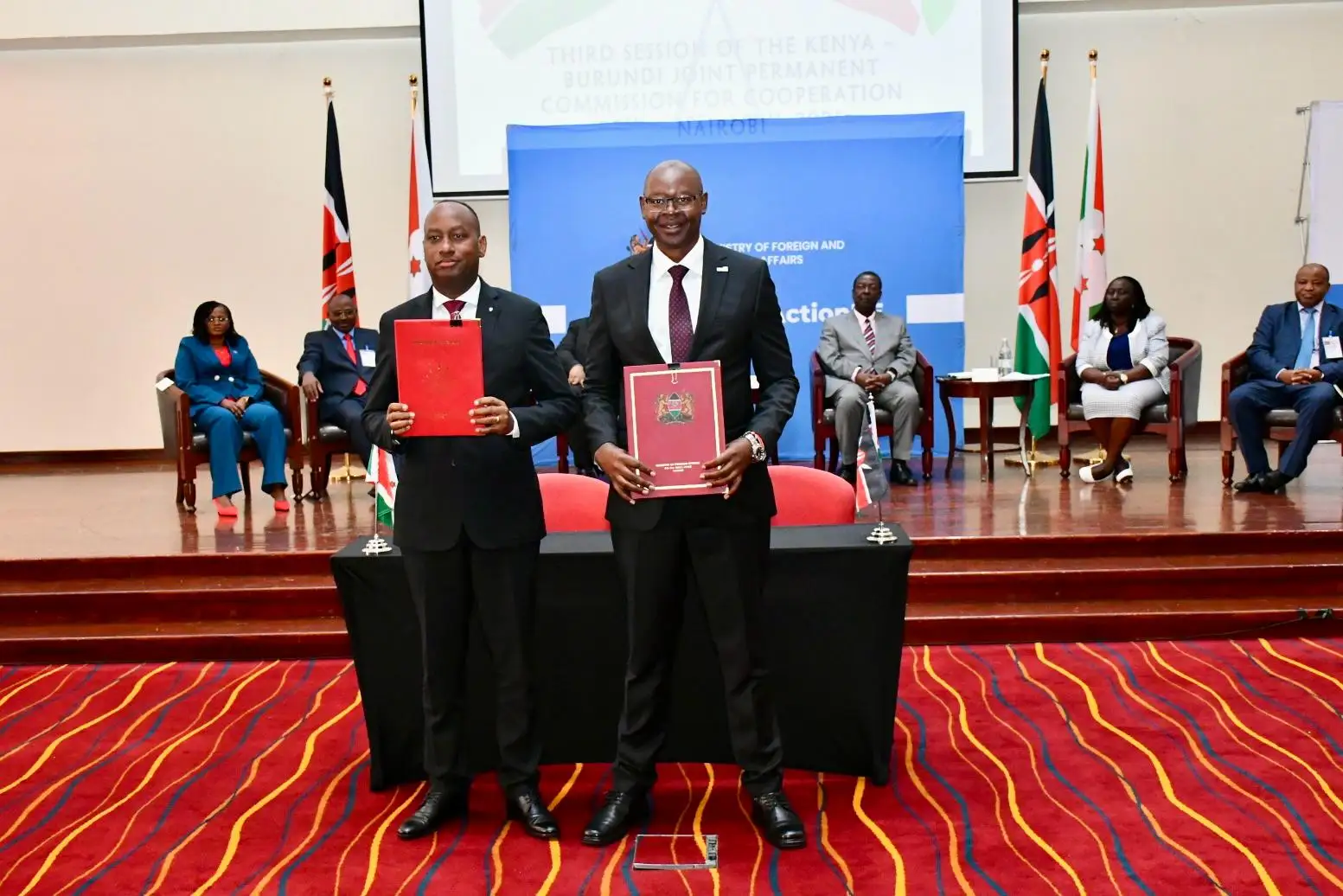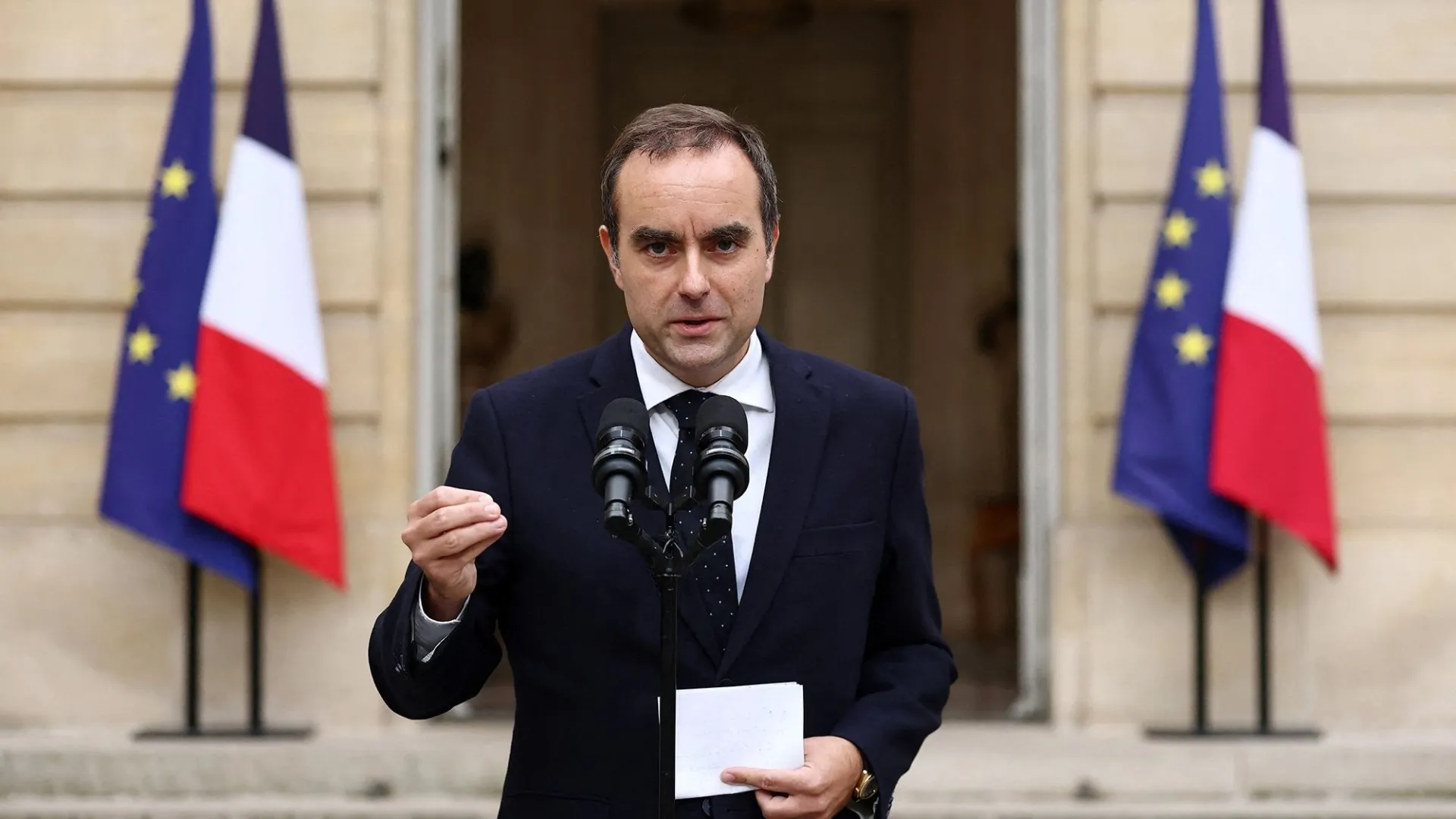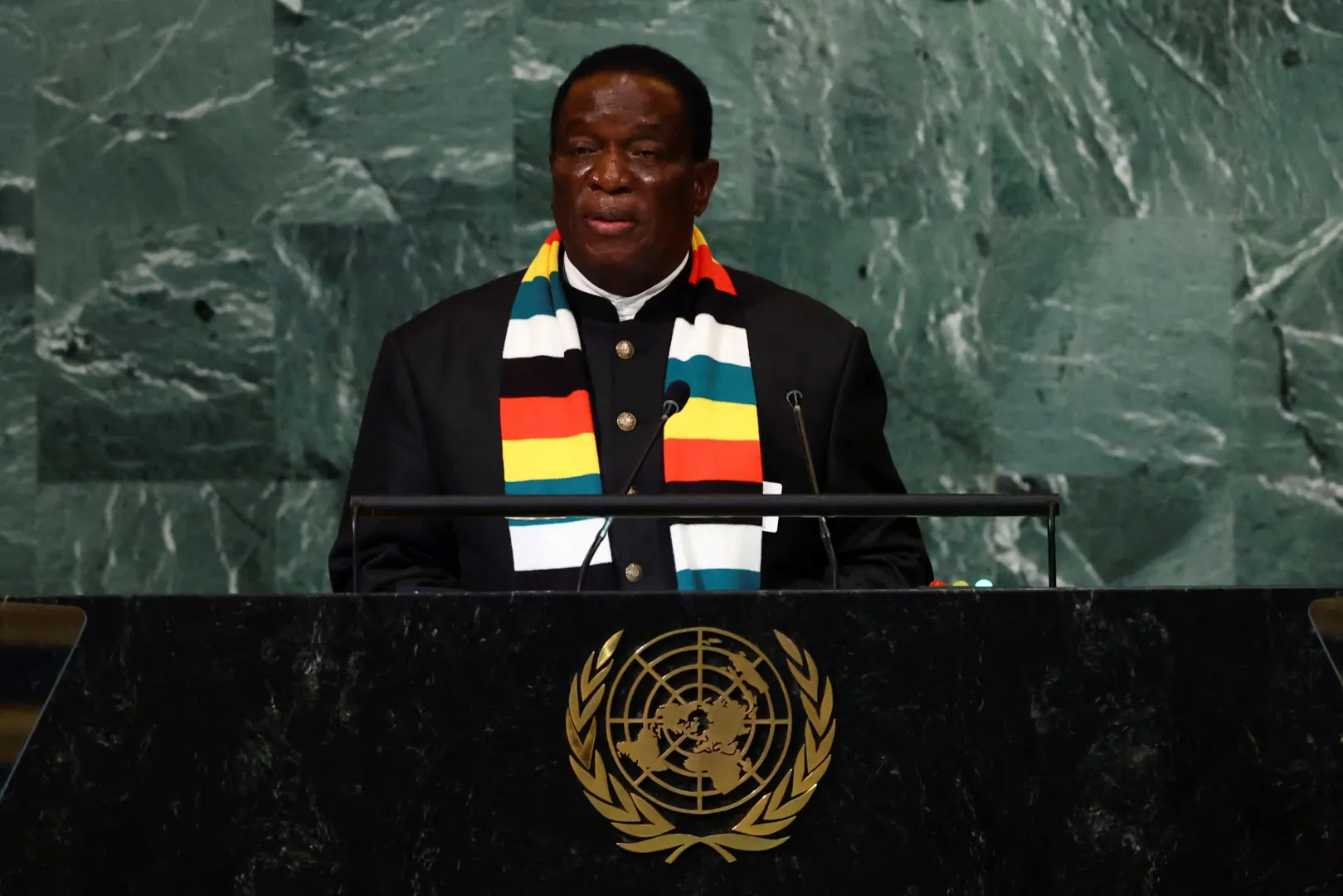Kenya has reaffirmed its commitment to combating climate change as a national priority, with President William Ruto placing sustainability at the center of the country’s development strategy. This commitment was highlighted as Cabinet Secretary for Environment, Climate Change, and Forestry, Aden Duale, led Kenya’s delegation to the 29th Conference of the Parties (COP 29) in Baku, Azerbaijan, an annual event that gathers global leaders, climate experts, policymakers, and environmental advocates to tackle pressing climate challenges.
At COP 29, the focus will be on critical climate issues, such as adaptation, resilience, mitigation, and finance. The Kenyan delegation, which includes senior government officials and climate experts, aims to advocate for equitable climate financing and bolster global support for Africa’s climate adaptation and resilience efforts. Kenya’s leadership in environmental stewardship and sustainable development has gained recognition on the international stage, and COP 29 provides a strategic platform for Kenya to continue amplifying its voice on these issues.
Kenya’s Climate Leadership and Strategic Objectives at COP 29
As one of the most climate-vulnerable countries, Kenya has taken significant steps in recent years to align its policies with sustainable development goals and international climate agreements. President Ruto has championed a “green growth” agenda, with an emphasis on renewable energy, water conservation, and ecosystem preservation. Recognizing the impact of climate change on critical sectors like agriculture, water, and health, Kenya is working to secure international support and financing to address these vulnerabilities and build climate resilience.
Prime Cabinet Secretary Musalia Mudavadi is also expected to attend the high-level sessions at COP 29. His presence will underscore Kenya’s commitment to climate action and reinforce the importance of integrating climate considerations into broader socio-economic policies.
Kenya’s Focus on Adaptation and Resilience
Kenya has made adaptation a core component of its climate policy, understanding that mitigating climate change impacts is crucial for safeguarding the livelihoods of millions. Extreme weather events, including prolonged droughts and erratic rainfall patterns, have had significant effects on Kenya’s agricultural sector, which employs a majority of the population. By prioritizing adaptation, Kenya is addressing both immediate needs and long-term vulnerabilities, with a particular focus on community resilience and ecosystem protection.
The delegation aims to attract substantial climate finance to fund adaptation projects, including reforestation, sustainable agriculture, and water conservation programs. These projects are vital for protecting Kenya’s biodiversity, enhancing food security, and strengthening the resilience of local communities to climate shocks.
Advocating for Equitable Climate Finance
A key objective for Kenya at COP 29 is to secure more equitable climate finance. Developing countries like Kenya, which bear the brunt of climate impacts despite contributing minimally to global emissions, have long advocated for fairer financing mechanisms from wealthier nations. Climate finance is essential for implementing Kenya’s ambitious Nationally Determined Contributions (NDCs) under the Paris Agreement, which outline the country’s emissions reduction targets and adaptation strategies.
Kenya’s climate finance goals align with broader African efforts to hold developed nations accountable for their historical emissions and obtain resources to support sustainable development. At COP 27 in Sharm El-Sheikh, Egypt, developing countries achieved a breakthrough by securing a “loss and damage” fund to aid countries most impacted by climate change. Kenya’s delegation at COP 29 will continue advocating for timely, adequate, and accessible funding under this framework, emphasizing the need for mechanisms that are responsive to the unique needs of African nations.
The Role of Renewable Energy in Kenya’s Climate Strategy
Kenya is a renewable energy leader in Africa, with approximately 90% of its electricity generated from renewable sources, including geothermal, hydro, and wind power. Kenya’s commitment to green energy aligns with global climate goals and positions the country as a model for sustainable energy development in the region. At COP 29, Kenya will highlight its successes in renewable energy as part of its broader strategy to reduce greenhouse gas emissions and transition to a low-carbon economy.
One of Kenya’s ambitious targets is to achieve 100% renewable energy for domestic electricity production by 2030. Investments in clean energy infrastructure not only support Kenya’s climate goals but also drive economic growth, creating jobs in sectors such as solar and wind energy installation, geothermal exploration, and green technology innovation. Kenya’s experience in developing its green energy sector could offer valuable insights for other nations seeking sustainable energy solutions.
COP 29 as a Platform for Addressing Africa’s Climate Challenges
Africa contributes less than 4% of global greenhouse gas emissions but is disproportionately affected by climate change, with devastating impacts on food security, water resources, and public health. At COP 29, Kenya will join other African nations in calling for a more inclusive and supportive global climate framework that recognizes the continent’s unique challenges and its potential as a hub for green innovation.
One significant challenge facing African countries is accessing climate finance. Despite commitments made by developed nations to provide $100 billion annually to help developing countries cope with climate change, this target has yet to be fully met. Kenya will continue to push for concrete progress on this commitment at COP 29, advocating for transparent and accountable mechanisms to ensure that funds reach the communities most in need.
Climate Action in the Context of Kenya’s Economic Development
In Kenya, the effects of climate change are intertwined with socio-economic development challenges, including poverty, unemployment, and infrastructure deficits. Climate-induced disruptions, such as floods and droughts, compound these issues by affecting agriculture, which is the backbone of Kenya’s economy. Recognizing this, Kenya has integrated climate resilience into its national development plans, with initiatives aimed at diversifying livelihoods, enhancing food security, and building climate-resilient infrastructure.
The Kenyan government has launched various programs to strengthen community resilience, including initiatives in climate-smart agriculture, water management, and disaster preparedness. For instance, the Kenya Climate Smart Agriculture Strategy (KCSAS) promotes sustainable farming practices that improve crop yields and reduce vulnerability to climate variability. Through partnerships with international organizations and NGOs, Kenya is working to build adaptive capacity among rural communities, particularly those most affected by climate-related shocks.
The Importance of International Partnerships and Support
Kenya’s climate strategy is bolstered by partnerships with international organizations, including the United Nations, the World Bank, and bilateral donors. These collaborations provide critical funding and technical support for Kenya’s climate initiatives, from policy development to on-the-ground implementation. At COP 29, Kenya will seek to strengthen these partnerships, exploring opportunities for collaboration on renewable energy projects, sustainable land management, and capacity-building programs.
Kenya’s recent membership in the UN High-Level Climate Champions initiative has further elevated its profile on the global stage, enabling the country to share its experiences and advocate for policies that benefit climate-vulnerable nations. Additionally, Kenya’s leadership role in the Africa Climate Summit, held in Nairobi in 2023, has positioned the country as a voice for climate action and a champion for sustainable development in Africa.
Kenya’s Role in Regional Climate Initiatives
Kenya is actively engaged in regional climate initiatives, working with neighboring countries to address shared environmental challenges and develop joint strategies for resilience. In East Africa, where climate impacts such as drought and flooding affect multiple nations, Kenya has been instrumental in promoting cross-border cooperation. Through the Intergovernmental Authority on Development (IGAD) and the East African Community (EAC), Kenya has advocated for regional policies on water management, agriculture, and disaster risk reduction.
As a member of the African Union’s Africa Adaptation Initiative, Kenya is also contributing to continent-wide efforts to scale up adaptation projects, improve climate data, and mobilize finance for resilience-building activities. At COP 29, Kenya will emphasize the importance of regional collaboration, underscoring the need for climate policies that account for transboundary environmental impacts and foster shared prosperity.
Looking Ahead: Kenya’s Vision for a Climate-Resilient Future
Kenya’s participation in COP 29 reflects its vision for a climate-resilient future, where sustainable development and environmental stewardship go hand in hand. By advocating for adaptation, resilience, and equitable climate finance, Kenya is not only addressing its immediate climate challenges but also contributing to the global effort to build a sustainable and inclusive world.
The country’s ambitious climate agenda, which includes transitioning to 100% renewable energy, strengthening community resilience, and advancing green economic growth, has set a benchmark for other developing nations. Through continued leadership and international cooperation, Kenya aims to create a future where climate resilience and economic prosperity are attainable for all.
COP 29 serves as a crucial moment for Kenya to reinforce its commitment to climate action, advocate for fair financing, and engage with global partners in the pursuit of a sustainable and resilient future.
Ready to take your career to the next level? Join our dynamic courses: ACCA, HESI A2, ATI TEAS 7 and HESI EXIT !🌟 Dive into a world of opportunities and empower yourself for success. Explore more at Serrari Ed and start your exciting journey today! ✨
photo source: Google
By: Montel Kamau
Serrari Financial Analyst
11th November, 2024
Article, Financial and News Disclaimer
The Value of a Financial Advisor
While this article offers valuable insights, it is essential to recognize that personal finance can be highly complex and unique to each individual. A financial advisor provides professional expertise and personalized guidance to help you make well-informed decisions tailored to your specific circumstances and goals.
Beyond offering knowledge, a financial advisor serves as a trusted partner to help you stay disciplined, avoid common pitfalls, and remain focused on your long-term objectives. Their perspective and experience can complement your own efforts, enhancing your financial well-being and ensuring a more confident approach to managing your finances.
Disclaimer: This article is for informational purposes only and does not constitute financial advice. Readers are encouraged to consult a licensed financial advisor to obtain guidance specific to their financial situation.
Article and News Disclaimer
The information provided on www.serrarigroup.com is for general informational purposes only. While we strive to keep the information up to date and accurate, we make no representations or warranties of any kind, express or implied, about the completeness, accuracy, reliability, suitability, or availability with respect to the website or the information, products, services, or related graphics contained on the website for any purpose. Any reliance you place on such information is therefore strictly at your own risk.
www.serrarigroup.com is not responsible for any errors or omissions, or for the results obtained from the use of this information. All information on the website is provided on an as-is basis, with no guarantee of completeness, accuracy, timeliness, or of the results obtained from the use of this information, and without warranty of any kind, express or implied, including but not limited to warranties of performance, merchantability, and fitness for a particular purpose.
In no event will www.serrarigroup.com be liable to you or anyone else for any decision made or action taken in reliance on the information provided on the website or for any consequential, special, or similar damages, even if advised of the possibility of such damages.
The articles, news, and information presented on www.serrarigroup.com reflect the opinions of the respective authors and contributors and do not necessarily represent the views of the website or its management. Any views or opinions expressed are solely those of the individual authors and do not represent the website's views or opinions as a whole.
The content on www.serrarigroup.com may include links to external websites, which are provided for convenience and informational purposes only. We have no control over the nature, content, and availability of those sites. The inclusion of any links does not necessarily imply a recommendation or endorsement of the views expressed within them.
Every effort is made to keep the website up and running smoothly. However, www.serrarigroup.com takes no responsibility for, and will not be liable for, the website being temporarily unavailable due to technical issues beyond our control.
Please note that laws, regulations, and information can change rapidly, and we advise you to conduct further research and seek professional advice when necessary.
By using www.serrarigroup.com, you agree to this disclaimer and its terms. If you do not agree with this disclaimer, please do not use the website.
www.serrarigroup.com, reserves the right to update, modify, or remove any part of this disclaimer without prior notice. It is your responsibility to review this disclaimer periodically for changes.
Serrari Group 2025












